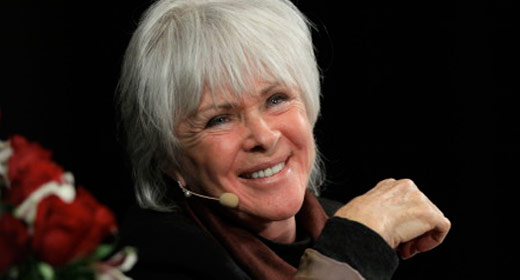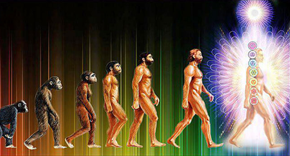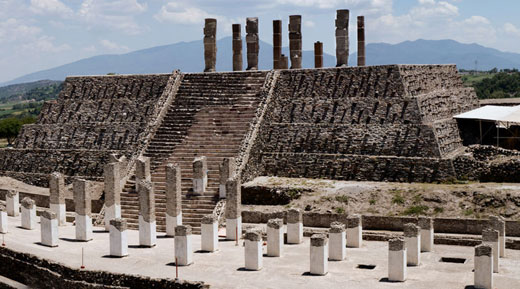by Gina Murdock:I’ve had a chance to experience Byron Katie‘s “The Work,” and I am amazed at how simple yet effective it is.

I know that sounds like a commercial, but I am really blown away. How did you come up with this method of inquiry?
Byron Katie: I was depressed for 10 years. Paranoid, agoraphobic, filled with self-loathing. Every day I wanted to die. For the last two years, I could barely leave my bedroom. Then one morning, as I lay sleeping on the floor in an attic room, a cockroach crawled over my foot. I opened my eyes, and in place of all that darkness was a joy I can’t describe. What I realized in that moment was that when I believed my thoughts I suffered, and when I didn’t believe my thoughts, I didn’t suffer. I’ve come to see that this is true for every human being. In that moment, The Work was born.
GM: Your story is inspiring. Can you tell us a little more about how The Work works?
BK: It’s a way to identify and question the thoughts that are the cause of all the suffering in the world. First, you write down the judgments you are thinking about other people, and then you put these judgments, one by one, up against the four questions of The Work. One: Is it true? Two: Can you absolutely know that it’s true? Three: How do you react — what happens — when you believe that thought? And four: Who or what would you be without the thought? Then you do what I call a “turnaround,” which is a way to experience opposites of what you are believing. Some of those opposites can wake us up to important truths that lie hidden within us. The Work is a simple, very powerful process.
GM: What is it that inspires you most?
BK: I’m most inspired whenever I hear of even the smallest act of human kindness.
GM: What makes you happy?
BK: Seeing people wake up to their kinder, wiser self and then watching them live it.
GM: How do you use your platform to change the world? Are you optimistic about the future?
BK: I teach people to question their thinking, and this changes their world. For me, the future lives only here in my mind, as thoughts and images, just as the past does, and I love those thoughts and the world that it produces. I am entirely optimistic about the future. I know that even at moments of apparent danger, nothing is out of order or lacking, other than our own unquestioned thoughts about those moments.
GM: What is one of the best decisions you ever made?
BK: Actually, I can’t take credit for any of my decisions. I noticed one day that all my decisions were making themselves, and always at the right time. I haven’t had to make one decision since then. They are always made for me, and they come from the wisdom that is in us all. I trust that wisdom completely. That trust itself was a decision made for me as inquiry cleared my mind. No decision, no fear.
GM: What has life taught you?
BK: To question everything, to remain open-hearted and to serve the freedom of others as though it were my own. Because it is.
GM: Do you practice any kind of yoga or meditation?
BK: I call The Work “mental yoga.” And it is meditation. I invite people to meditate on each of these four questions. For example, if you are believing “He doesn’t care about me,” and are meditating on the third question (How do you react, what happens, when you believe that thought?), in that silence you begin to notice the feelings and emotions that occurred in that situation. You feel them rise from within, and mental images show you how you treat others and yourself when you believe that thought. With the fourth question (Who would you be without that thought?), people come to see what it would be like to experience a stressful situation without the thought that is creating the stress in the first place. It’s truly amazing to see what is revealed in that quietness. It can be life-changing! Imagine how it would feel, what kind of person you would be, how you’d be treating other people and yourself, if you didn’t believe your negative judgment of that person.
GM: What is your daily spiritual practice?
BK: To love without exception.









































